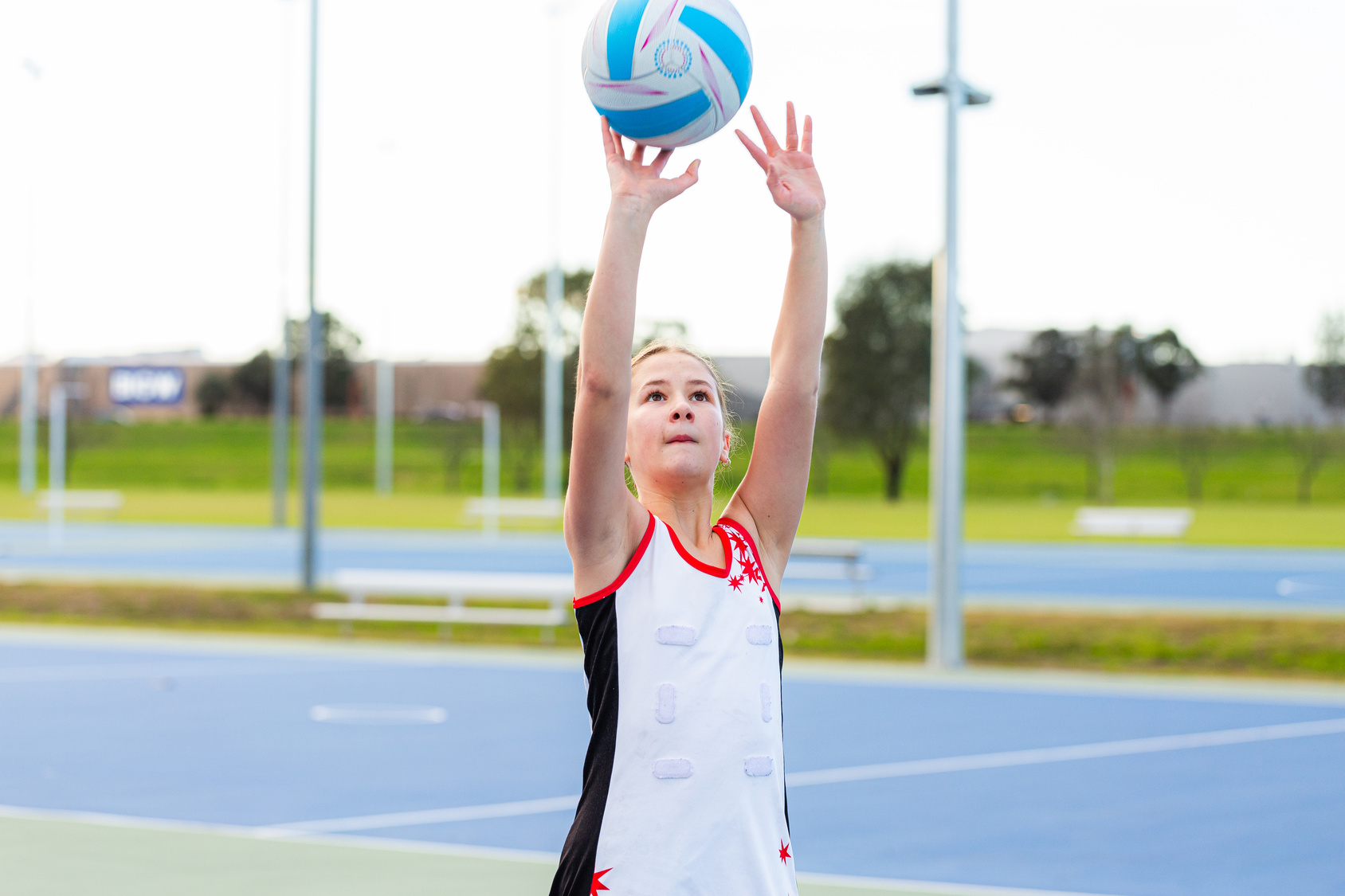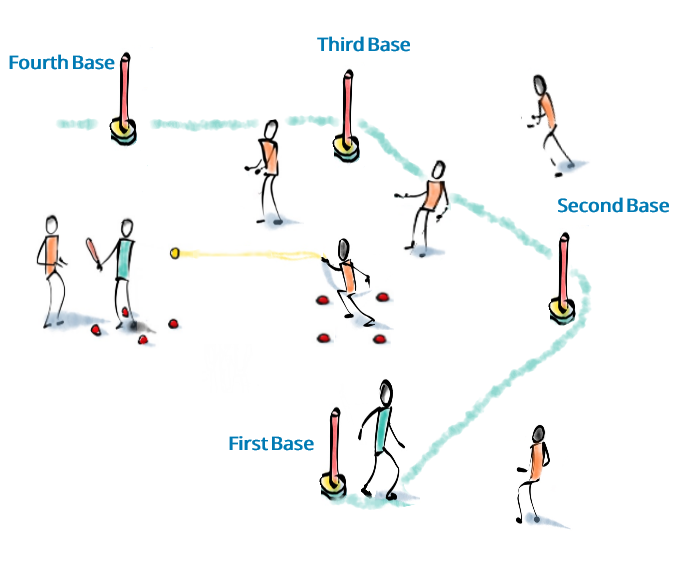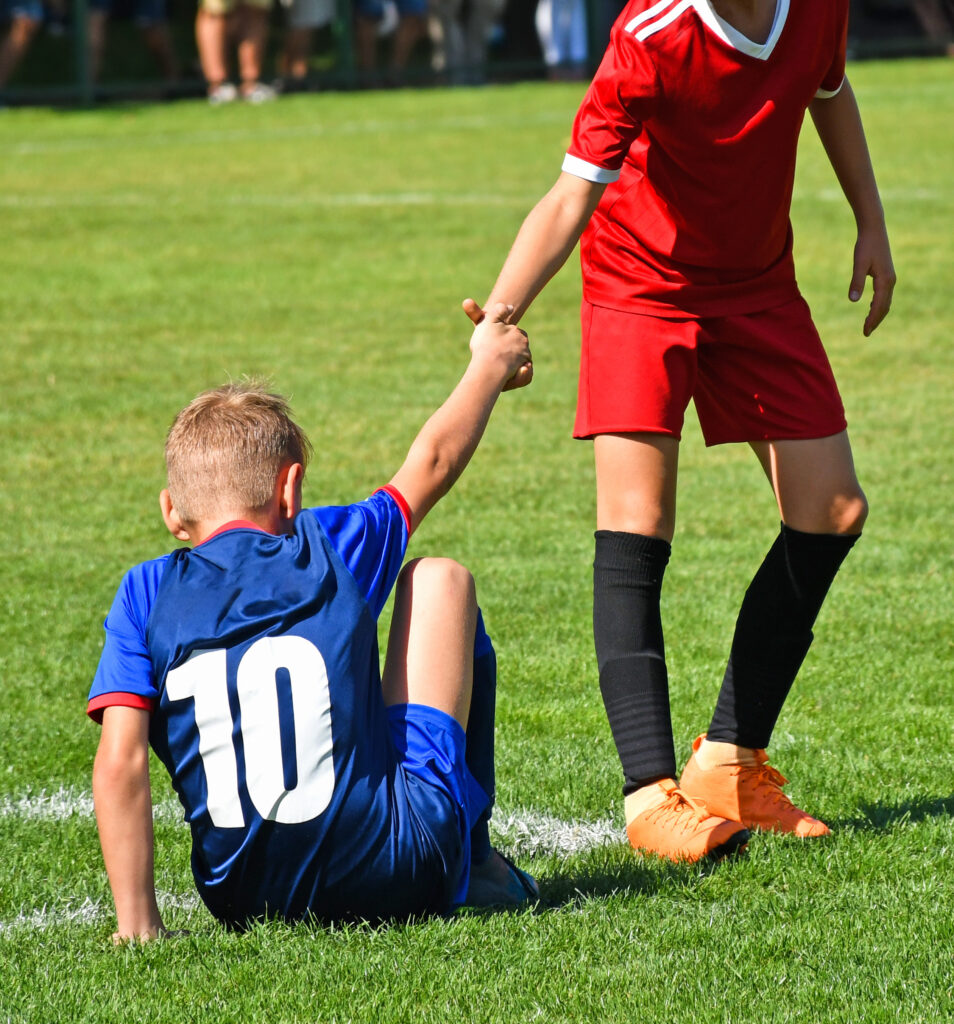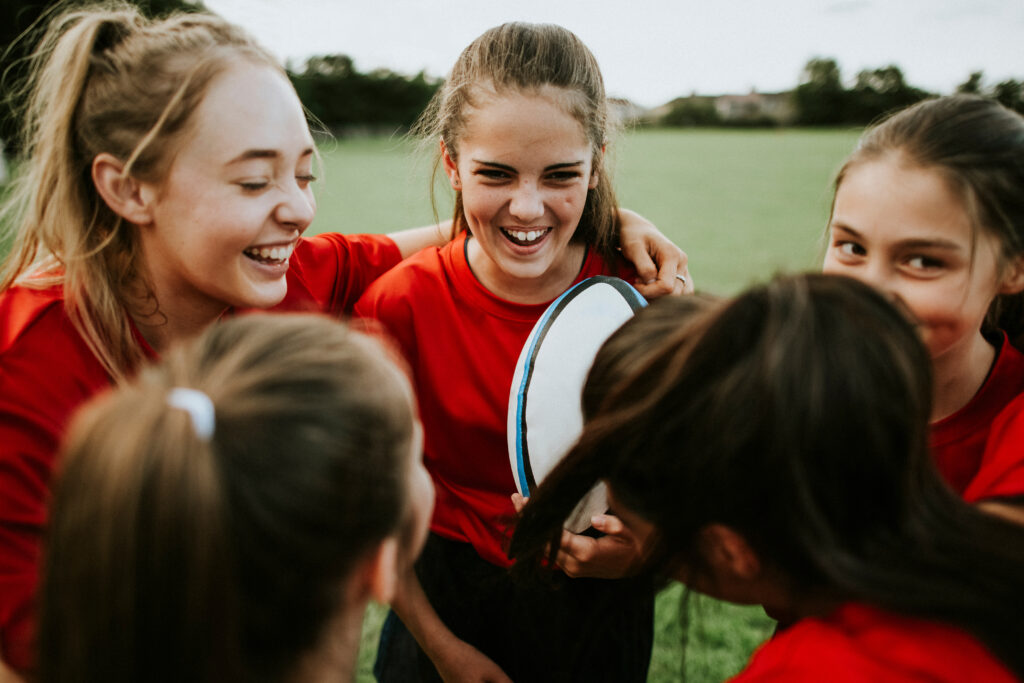Teaching Children Good Sportsmanship
Good sportsmanship is a significant life skill that should begin to be instilled during the Primary School years. The importance of a child demonstrating the understanding of fair play, integrity and respect for others goes far beyond sport and is vital for developing the whole child.

Good Sportsmanship
Good sportsmanship is a significant life skill that should begin to be instilled during the Primary School years. The importance of a child demonstrating the understanding of fair play, integrity and respect for others goes far beyond sport. It is vital for developing the whole child.
PE is the perfect opportunity to introduce and develop these ethics. The National Curriculum for Physical Education states its purpose of study is to create “opportunities to compete in sport and other activities build character and help to embed values such as fairness and respect“.
Good Sportsmanship helps games run smoother and keeps them enjoyable; but outside of sport here’s how practising good sportsmanship can impact the whole child…
Develops Empathy
By understanding the efforts of others, winning graciously and showing kindness in competitive situations, empathy can grow.
Encourages Appreciation and Respect for All
Good sportsmanship creates an appreciation for others – team mates, opponents and officials. It ensures rules, coaches, and decisions are respected without conflict or bitterness. This appreciation and respect is just as important in the classroom, and at home, as it is ‘on the field.’
Instils Discipline
Playing sport, and displaying good sportsmanship, teaches a child discipline. They must obey rules in games, face consequences if rules are broken, and follow the instructions of officials and coaches.
Competitive in the ‘Right Way’
Children must learn to win and lose in the right way. This will help them build friendships, work well in group situations and build resilience and self-control. Winning in the right way means playing fairly, without bending the rules or cheating. It also means winning with grace, without ‘showing off’ or being unkind to opponents after winning.
Losing in the right way means being able to get past defeat without being sore or hostile. Being able to manage failure, and change focus onto improving performance, is a trait that will help the child all the way through life.
Develops Character
Good sportsmanship develops many qualities that creates better people.
Honesty – following rules and playing fairly.
Self-Control – to manage difficult situations without verbal or physical confrontation.
Teamwork – to work with others, showing respect, understanding and empathy.
Resilience – to overcome obstacles, manage conflict appropriately, and bounce back from defeat.

Team games such as Tag Rugby or Netball are great units of work to help children practise good sportsmanship. It’s also a good idea to introduce early years children to the importance of good sportsmanship. Our Foundation Working with Others unit is a great starting point.
Tips for Teaching Good Sportsmanship
Avoid Arguments
Ensure children understand the need to avoid conflict with opponents, teammates and officials and to stay focused on the game. Reward children who are performing well, achieving the lesson learning objectives or showing good sportsmanship. This takes the focus away from points and scoring. Give children who are struggling with this a focus, such as a challenge within the game, that they must try to achieve.
Respect the Opposition
Children must show respect to the opposing team no matter what the result. PE isn’t always the right environment for keeping scores, but sometimes it’s inevitable. Speak to your class about the importance of good sportsmanship, how within PE and outside of PE we should aim to ‘treat people how we wish to be treated‘ and how behaving unkind, or rude to others doesn’t help improve the performance of anyone. Give examples of how children can show good sportsmanship whether they win or lose during competition.
Fair Play
Children must follow the rules and play the games fairly. Remind children that if they cheat, they are not truly achieving success, and it’s better to work hard now to improve skills and techniques, rather than cutting corners and missing learning opportunities.
Be a Good Teammate
Teach children to praise and encourage their teammates. Challenge them to find ways to support each other, even if mistakes are made. Don’t tolerate children being unpleasant towards others. No one likes their peers being negative towards them. This factor is also important for encouraging engagement and keeping children enjoying sport.
Competition when Needed
Competition is sometimes required in PE, and sometimes it can be inevitable, but it isn’t always necessary. If your PE activity does involve competition, keep your focus on the skills and techniques from the learning objectives and reward children who are performing these well.
When children aren’t following the rules during games, have a quiet word with individuals instead of in front of the whole class.
If the lesson aim is focusing on developing good sportsmanship, again reward children displaying these characteristics throughout, and highlight what they are doing well during games.
Encourage after school clubs / extra-curricular clubs for children who are excelling and would like more competition.
For children struggling with managing their emotions, our Mental Health & Wellbeing resources may be useful to use alongside PE lessons to help develop the positive characteristics of good sportsmanship.
Good Sportsmanship in PE Lessons

To conclude, sportsmanship plays a vital role both within the quality of your PE lessons, and for the social, emotional and psychological growth of your children.
Ensuring children practise good sportsmanship within your PE lessons can make their PE experience more enjoyable, more fulfilling and more rewarding. It can be the starting point for children enjoying physical activity and choosing to remain active as they get older.
Good sportsmanship develops a wide range of characteristics that are important for people of all ages, and will be valuable for children as they grow… honesty, discipline, respect, resilience… the list goes on.
Learn about a Free Membership to PE Planning as well as the different, low cost subscription packages we offer to Teachers, Coaches and Schools here…




